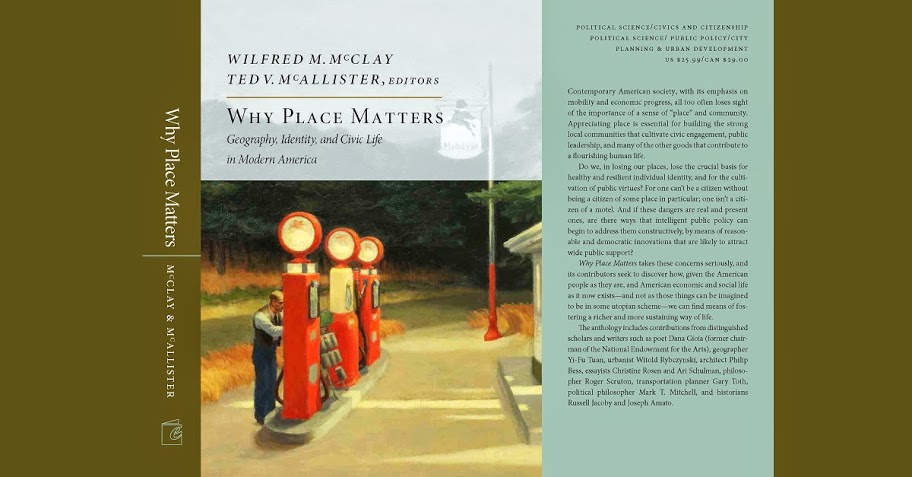Applying the commandment to “love my neighbor” to literature, Laura Marshall discovered a whole new way of relating to writers.
When I was five, I sat on the couch, cried over my first phonics book, and told my mother that I was stupid and would never learn to read. She refused to believe me and would probably not be surprised to know that now, twenty-three years later, I am a graduate student in Classics, attempting to understand themes in Homer and the intricacies of Greek verbs. There are still many times when I struggle to understand a passage or grammatical construction, but my goal remains the same: I want to learn how to read well.
My mom died my junior year of college, but my first lesson in reading came from the way that she loved and led me into literacy: assume that you are dealing with a person of intelligence and potential, even if it takes patience and attentiveness to discover that intelligence. This lesson continued when my first philosophy professor, Mark Mitchell, introduced a group of overly eager freshman to the concept of reading charitably. At its most basic level, the idea served as a warning not to use out-of-context quotations in our term papers, because this was not fair to the text as a whole—but the idea had broader applications.
Until that point, I had thought of charity (agápe, often translated as “love”) in the context of face-to-face interactions, but when Paul called it the greatest virtue, he did so in a letter (1 Corinthians 13:13). If the virtue of love was praised in a written medium, what did it mean to apply that virtue to the medium and to treat an author’s work with love? As I read my way through Aristotle, Kierkegaard, and Nietzsche with a community of smart students and a professor who knew how to guide discussion, I realized that this type of reading demanded an initial position of humility from the reader, and an assumption of the author’s intelligence. I could disagree with a text, but I had to begin by attempting to understand what it was saying. That often involved reading slowly, re-reading, and discussing a text with others. I could not read charitably by beginning with the assumption that “author x is stupid.”
My maturation into reading charitably did not end with realizing that Plato is, in fact, smarter than most freshmen believe. One author led to another, and I discovered Alan Jacobs’s The Theology of Reading: A Hermeneutics of Love. Jacobs argues that loving is a kind of knowledge. In English, this type of knowledge is distinguished from informational knowledge by the use of the preposition “of.” According to Jacobs, I may know about the periodic table (informational knowledge) but I know of my mother (relational knowledge).
Jacobs shows the difference between these two types of knowing by looking at the way two characters respond to a false accusation in Shakespeare’s Much Ado About Nothing: Claudio believes Hero has been unfaithful to him because of something he saw, while Beatrice believes that Hero is innocent because of the type of person she knows Hero to be. In the end, Beatrice’s relational epistemology proves to be sounder than Claudio’s visual epistemology. This idea is older than Jacobs and Shakespeare; in the same passage where Paul praises agápe, he states that seeing in a mirror (visual knowledge) is inferior to face-to-face knowledge. But this statement is given in a written medium rather than a face-to-face encounter, so although Paul obviously values face-to-face relationships, it is not merely because of their visual value. Rather, face-to-face interactions help foster a relational knowledge that is also developed in Paul’s letter (he calls the Corinthians his beloved in 10:14). For the Christian, then, writing and reading are an integral part of developing an epistemology of love.
It is easy to argue for charitable reading when the text belongs to one of the most influential thinkers in Western philosophy or scripture itself. But for many people, the majority of daily word consumption comes from Facebook and Twitter rather than Plato or Paul. Text—whether it is on a physical page or a screen—often gives the reader a feeling of anonymity and an accompanying freedom to criticize without regard for the person who is the object of that criticism. In the backlash to comment wars, cries for “civility” abound. But as a Christian, I am called to a different standard than “civility,” which defines the discourse in terms of my status as a citizen and my participation in civil order. I am called to love my neighbor.
Being a good neighbor is different from being civil or being a good friend. Jacobs points out that friendship, in Aristotelian terms, is based on an understanding of virtue that is competitive, exclusive, and based on certain ideas of reciprocity. Christ’s definition of a neighbor given in Luke 10 is different: the good Samaritan showed love to a man he didn’t know, who was probably from a different region, and from whom he demanded nothing in return. My neighbor includes the person whose blog post I stumble across somewhere on the hyperlinked road between Jerusalem and Jericho. Unfortunately, many online comment wars are conducted with a verbal violence that is equivalent to beating the traveler and leaving him for dead rather than taking an active interest in understanding and meeting his needs.
Before discussing how to love one’s neighbor in a social media context, it is important to note that critiques of social media do not relieve me, as a Christian, of my obligation to love the neighbors I come across there. An increasing number of news stories (often propagated through social media) describe how Twitter has given us shorter attention spans, and a recent study by researchers at the University of Michigan indicates that Facebook use makes users more unhappy with their lives. It is tempting to assume that if Facebook is a guilty pleasure and probably not the best use of my time anyway, then perhaps other moral obligations (such as loving my neighbor) do not apply as strictly in this context. But critiquing the medium does not release me from the obligation to love the neighbors I encounter in that medium.
This temptation generally appeals to me on a subconscious level that allows me to turn off the critical and attentive faculties I use elsewhere when reading social media. But if I apply the parable of the good Samaritan to this generally unvoiced argument, I realize that I’m using a critique of the road as an excuse for walking past a neighbor in need or, worse yet, beating up the needy person I discover on that road. The good Samaritan did not criticize his neighbor for using that particular highway, nor did he hurry past the man as the trained reader (the scribe) and the religious leader (the Pharisee) did. I am relieved of my obligation to attentiveness and charity by the fact that I may not personally “know” the people I meet on social media, for it is unlikely that the Samaritan knew the injured man beforehand.
The audience for Christ’s story in Luke 10 identifies the neighborly man as “the one who showed mercy,” and mercy is a type of relational knowledge that requires attentive reading another person’s needs and finding ways to meet them. I’ve often discovered after the fact that many comments I judge on social media as “dumb,” or “narcissistic” are motivated by other things happening in the author’s life, or past wounds that haven’t yet healed. Charitable reading requires taking that possibility into account and stopping by the side of the road to discover what’s wrong. This requires a thoughtful use of the medium because a private message is often more effective at getting to the wounds below than a public rant could be.
Furthermore, social media itself can be helpful in understanding how to use social media charitably. Critiquing a medium is not a new idea; in the fourth century BC, Plato’s Socrates tells his friend Phaedrus a story about how the invention of writing has decreased the human ability to remember (Phaedrus 274d-275b). Those of us who rely on our smart phones to remember everything for us will agree that this is true, but most would also agree that writing has added much to the human experience, including the ability to read Plato’s thoughts some 2,300 years later. Plato presents Socrates giving a critique of the medium of writing, but Plato himself uses the medium of writing to convey that critique.
In a similar way, I am aware of critiques of social media in large part due to their dissemination through social media. There are costs to every new technology, and it is wise to be aware of the ways in which social media shapes the messages conveyed by it, but social media also offers new opportunities for developing critical thought through sharing critiques with others. Connecting good thinkers and sharing good thinking is one way to be neighborly, similar to the way that the good Samaritan connected the beaten man to someone else (the innkeeper) with the resources to meet his needs. Charity does not call for an abdication of critical thought but the application of that ability in the service of love.
Good critical thinking is part of loving my neighbor because it is a refusal to allow false arguments to deceive him and others, but the way that critical thinking is communicated can be done charitably or uncharitably. One of the most charitable critiques of a text I have ever read is C.S. Lewis’ first chapter in The Abolition of Man, where he systematically and thoughtfully takes apart the ideas he finds in an elementary textbook that he calls “The Green Book.” Few readers would be as critical as Lewis is, yet his critique shows concern for the authors of the book by using pseudonyms for them and crediting them with the best of intentions. He shows concern for the students who might be harmed by the textbook’s errors by using his own reading of texts as diverse as Samuel Johnson’s Journey to the Western Islands and a travel advertisement to show how the assumptions in the Green Book are dangerous to students. Finally, Lewis shows concern for the readers of his own essay by using concrete language that avoids technical words and by making use vivid images such as “men without chests.”
Is this type of charitable reading possible in the context of social media? If so, it will require creativity and no small degree of skill with words. Writing well in 144 characters is more difficult in many ways than writing a novel, but good writers have always believed in the value of concision. “I have only made this letter longer because I have not had time to make it shorter,” wrote Blaise Pascal in 1657, and his comment reminds me that good writing requires good editing and time. Using social media slowly may be one of the best strategies for using it charitably, and waiting to re-read and edit a Facebook post before sharing would have saved me grief on multiple occasions. Ultimately, social media does not absolve me of the obligation to read and critique charitably, but rather challenges me to practice reading and writing well in a context that demands great skill and patience to do so. But if Christ used parables to speak to his audience and C.S. Lewis used children’s stories, then I can learn how to Tweet with love.













